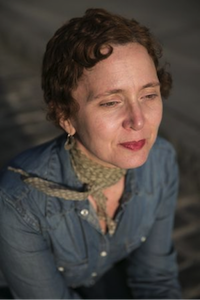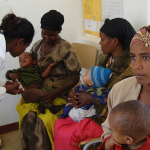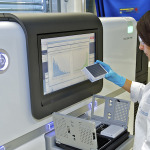
The astonishing array of debilitating and fatal diseases from which public health workers routinely protect infants.
Image: †#€ ßΩ∂†M∂И (Flickr)
My response to this question is shaped by the fact that when it was asked, I was still recovering from a trip down the rabbit hole of anti-vaccine sentiment masquerading as sound medical advice, with which I became acquainted (and a bit obsessed) whilst researching a human papilloma virus (HPV) vaccine paper for school.
Where to start?
Public health, when I discovered it, was a revelation. Before entering Columbia University’s public health program in my mid-twenties, I had been working as a health teacher in a New York City high school. Research appealed to me as a way of broadening my reach. Doing well in biostatistics, epidemiology, and management of healthcare organizations surprised no one more than myself. I devoured everything that people such as Deborah Maine and Wendy Chavkin had to say about reproductive health. My studies helped me gain the skills to become an evaluation and information-systems specialist and I went on to work in programs targeting teen pregnancy, tuberculosis, HIV, child survival, and obstetric fistula in more than twenty countries over the last sixteen years.
Public health provides an analytical framework for tackling the fundamental question the name implies: is the public healthy? Had I realized at twenty-five how radical a question this is, I might have been daunted into going another direction. I had not yet thought through how vast and diverse a concept “the public” can be, nor that health is a viewed by many powerful interests as a commodity rather than a right.
Recently I decided that I wanted to provide the services I was helping evaluate, so I applied to and began midwifery school. What I did not fully recognize when I re-entered the American health system—and entered the “birth space”—was how much public health had become my worldview as much as a skill set. I had come to presume that faith in data and standards, belief in equity over profit, and comfort with difficult decisions—in which the collective good often trumps individual rights—obviously go hand-in-hand with a passion about women’s health.
Back to the HPV vaccine, and my discovery upon returning to the US after ten years abroad that vaccines were, among some well-connected people living in the relatively conflict-free, so-called first world, considered controversial. The HPV vaccine is especially interesting to me because of the convergence of the vaccine-safety and adolescent-sexuality issues that it represents. Its potential for good stems not only from the obvious cancer-prevention benefits but also from its targeted timing in adolescence and promise as a conversation-starter between adults and kids about sex. Given all this potential, I was disappointed to learn that uptake is low and there is evidence that intention to vaccinate is declining.
But along my journey I found many good resources, including Voices for Vaccines. Besides practical tools for concerned parents, Voices for Vaccines includes one mother’s testimony—equal parts upsetting and inspiring—in which she first describes her “midwives [being] very supportive of [her] anti-vaccination stance.” She goes on to describe her change in thinking and behavior after reviewing the evidence about childhood vaccines.
When I left my last public health job a year ago in order to survive pharmacology during my first semester of midwifery school, one colleague accused me of running off to join the “public health ninjas.” The International Confederation of Midwifery’s capacity statements for comprehensive midwifery care are, in fact, pretty badass and I am thrilled to be pursuing a qualification that so tangibly embodies public health principles. That same public health job provided me with a crash course in INNOVATION, writ large, as it has emerged on (and risks taking over?) the global development scene.
Feel-good health-related decision-making (at both the individual and population levels) and innovation as cover for privatization are but two of the many things that preoccupy me these days. Across the world, the public is NOT healthy. But in my new capacity as a public health midwife, I will continue to embrace—even more unapologetically—the “public” part of our name. This means promoting proven vaccines and other public-health strategies such as birth preparedness and family planning as opportunities for us all to work together to achieve better and more equitable health outcomes.
•
 Renée Fiorentino is a public health evaluation specialist and a student midwife. She lives in Brooklyn with her husband and two cats.
Renée Fiorentino is a public health evaluation specialist and a student midwife. She lives in Brooklyn with her husband and two cats.




One thought on “Mastering the MPH: Becoming a Public Health Midwife”